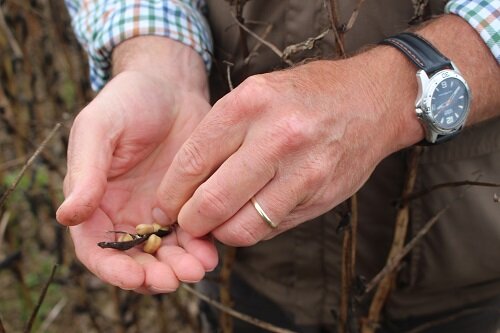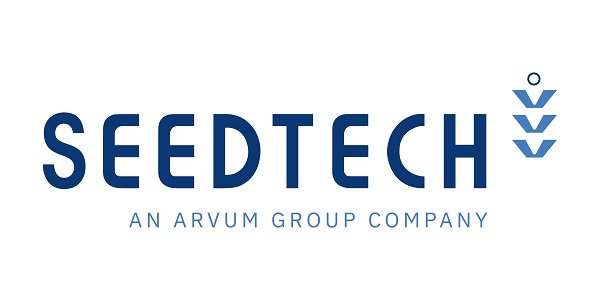
Faba Beans Research
& Policy Development
Seedtech is actively involved in research to develop faba beans for human consumption, animal feed and environmental benefits.
Seedtech has been involved in bean trials since the 1970s when they brought the first modern varieties to Ireland.
Since then, Seedtech has been trialling bean varieties and looking at variety development to achieve yield stability through better drought tolerance, disease resistance, and selection for desirable traits for premium markets.
Seedtech’s research is focused on delivering varieties with a consistent yield at farm level. Lynx is the leading bean variety, topping the DAFM trials since 2017 and is grown in 4 out of 5 bean fields in Ireland.
Research continues to quantify the positive effects of incorporating beans into long-term crop rotations in terms of nitrogen reduction in succeeding crop, soil fertility, and yield improvement across the rotation and lower pest pressure.
New genetics in faba bean varieties
Seedtech has introduced novel genetics in recent years like Victus, a low vicine convicine bean variety and Taifun, a zero-tannin variety. These specialist varieties offer the end-user better utilisation of beans in animal diets and human diets.
“Teagasc analysis on the average tillage area from 2019-2021 has shown that increasing the area of faba beans from the current ~10,000ha per annum to 20,000ha per annum can reduce nitrogen (N) requirements by up to 1,619,529kg of N or 6,000t of CAN equivalent.
Legumes have an important role in sustainable tillage systems. In addition to enhancing soil N levels and acting as a break in cereal rotations, they are a resource for pollinators, promote soil biodiversity and the overall greenhouse gas (GHG) emissions associated with legumes is low.”
Research Support
Seedtech supported Teagasc Feed Research of faba beans as part of our participation in the EU funded project Legumes Translated.
The key finding from this trial was that beans could fully replace soya in finished pig diets.
Effect of Raw and Extruded Propionic Acid-Treated Field Beans on Energy and Crude Protein Digestibility (In-Vitro and In-Vivo), Growth and Carcass Quality in Grow-Finisher Pigs.
Summary
European pig meat production is highly dependent on imported soybean meal (SBM). The area of field beans produced in the EU has increased greatly in recent years. There is renewed interest in field beans as an energy and protein source.
Extrusion of raw ingredients can increase their nutritional value. It was hypothesized that propionic acid-treated field beans can be used to replace SBM in finisher diets and that extrusion of field beans will improve their nutritional value. Three experiments were conducted to determine the effect of extrusion of field beans on energy and crude protein digestibility (in-vitro and in-vivo), growth and carcass quality of grow-finisher pigs. Field beans are a good energy and protein source and can be fed at up to 37% inclusion in pig diets.
Extrusion of field beans increased the digestible energy (DE) value, decreased the digestible crude protein (dCP) value of field beans, and had no effect on pig growth.
Research Support
Seedtech supported research by Adesco looking at commercial feeding of pigs found that inclusion of faba beans would half the carbon footprint in the pig diet.
Substitution of conventional dried barley for MycoCURB TM ES treated barley improved lean gain and carcass grading in finishing pigs without affecting performance.
Summary
A large commerical trial (over 3,200 pigs) assessed the impact of substituting conventionally dried barley with high moisture barley preserved with MycoCURB ES on the performance and carcass grading of finishing pig production. Overall, pigs fed a diet with 35% treated barley:
• Had improved growth (1,011 g/day treated vs 995 g/day control) compared to those fed conventional diets, though feed efficiency was slightly redcued (2.657 treated vs 2.624 control)
• Had improved lean weight (61.2 % carcass weight treated vs 60.57 % control, P<0.05) and less backfat (12.29 mm treated vs 12.64 mm control, P<0.05) at slaughter
• Had improved carcass grading
Higher liveweight gains, improved carcass yield and lower mortality and condemnations lead to more kilograms of lean meat sold in pigs fed diets containing 35% treated barley.
Irish Protein Crop Stakeholders Group.
The goal of the Irish Protein Stakeholders Group is to support farmers to produce 100,000t of indigenous protein crops in Ireland by 2030.
How we get there:
Improving farmer profitability from protein crops versus other crops through variety improvement, better agronomic practices and bridging knowledge gaps.
Create a positive market environment for indigenous protein crops by establishing their nutritional credentials and demonstrating to livestock producers the advantages of substituting imported proteins.
Create a greater recognition of the sustainability credentials of native protein crops to achieving climate change and biodiversity targets by the displacement of imported protein sources.
Legume Translated.
Although grain legumes such as faba bean, pea and soya account for about 14% of the global arable cropping area and are essential to global plant protein supplies and many sustainable plant-based foods, they account for only about 3% of arable cropping in the EU.
Legumes Translated brings developers of grain legume crops (protein crops) and related value chains together in an EU Framework Programme Thematic Network.
This provides a knowledge platform for the development of legume crop (or protein crop) production and use. The overall goal is to increase the production and use of grain legume crops in Europe as part of an overall change in how protein is sourced and used in Europe.
The purpose of the The Legume Hub is to empower all interested in the development of legume crop production and use by providing access to validated knowledge. It is a platform dedicated to sharing knowledge and successful practices across value chains, from plant breeding, on-farm activities, through to processing and consumption.
Knowledge Hub
Watch Faba Beans videos below.
How to sow spring beans with Seedtech, preparation and sowing
2. Emergence stage of spring beans with Seedtech
3. Early spring growth stage of spring beans with Seedtech
4. Pod fill stage of spring beans with Seedtech
5. Harvest of faba spring beans with Seedtech
6. Production of Faba spring beans with Seedtech



